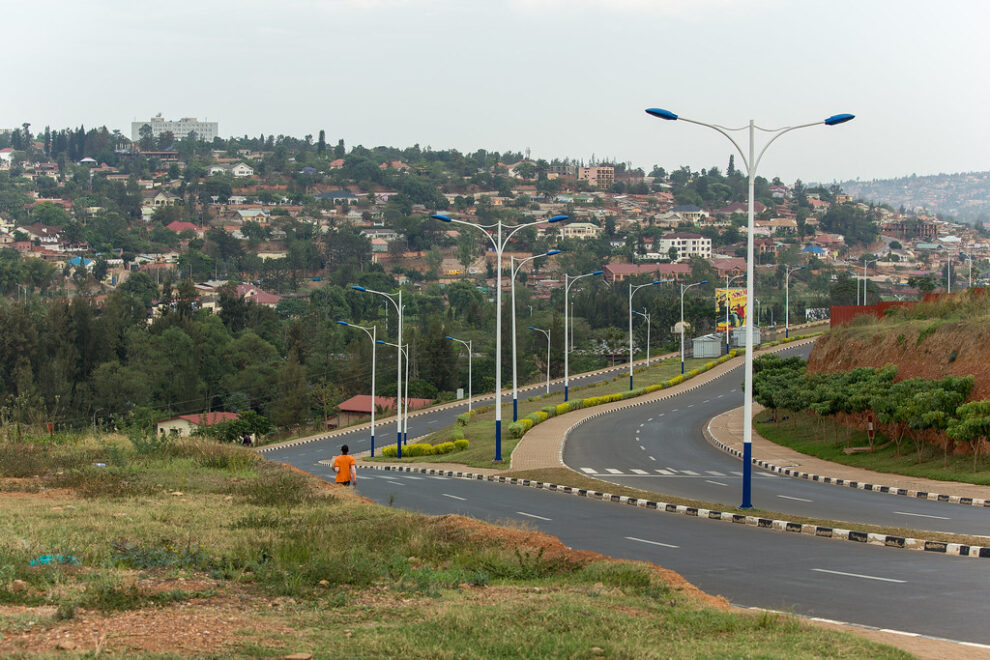As a homemaker, Louise Bizimana resides in the Gikondo area of Kigali, capital of Rwanda. Her daily routine includes a 2-kilometer trek to a distant well to fetch water. The wells, dug last century, have been the primary source of water for locals for many decades.
Water fetching is undoubtedly a challenging task for her. She must make three trips to the well each day to collect the water needed for cooking. The number of trips required increases if additional water is needed for daily chores such as laundry.
This situation will change next year, as China Railway Construction Engineering Group (CRCEG) announced earlier this month that the Kigali water supply network upgrade and revamp project will be fully completed by the end of this year, providing “safe and convenient water” supplies to more than 1.3 million residents in Kigali, thanks to the tangible growth of the Belt and Road Initiative, closer business ties between China and Rwanda, and the African country’s efforts to provide clean and safe drinking water to all Rwandan citizens with modern water supply facilities by 2024.
“Big-ticket infrastructure projects have often been the preferred calling card for Chinese companies in the economies involved in the BRI. But with many countries and regions entering a new round of development, we have changed the tack and participated in more developmental and societal projects,” said Wang Yusheng, board chairman of Beijing-based CRCEG, a subsidiary of State-owned China Railway Group Ltd, or CREC.
To address long-standing issues of substandard drinking water and insufficient water supply faced by local residents, the Rwandan government has undertaken multiple water supply pipeline projects with funding from the African Development Bank in recent years.
Among such public works, the Kigali water supply network upgrade and revamp project, undertaken by CRCEG, is the largest in scale, the most challenging in construction and will benefit the largest number of people in the African country, said Liu Dianjun, the company’s chief accountant.
This project was initiated in December 2018 and includes 586 kilometers of water supply pipelines, 42 concrete reservoirs and eight pumping stations, covering Kigali and most surrounding towns. CRCEG had completed installation of 582 kilometers of pipelines and construction of 42 reservoirs by the end of September.
Liu said the project aims to improve the infrastructure of Kigali’s urban water supply network, providing residents with better water conditions and security, thus ensuring access to safer, more reliable and higher-quality potable water. This initiative aims to enhance the living standards and health conditions of local communities.
Apart from relieving local residents from the daily drudgery of fetching water from nearby collection points to meet their basic needs, the new water supply project will likely stimulate the growth of local service-related businesses and attract both domestic and international companies to invest in water treatment plants and food processing business in Rwanda as the country has abundant water resources, making it an attractive destination for such investments, said Zhou Lisha, a researcher with the Institute for State-owned Enterprises at Tsinghua University.
Even though there are roads, bridges, railroads and various other office buildings in many countries that stand testimony to the capabilities of Chinese companies, CRCEG said it will gear up efforts to participate in more projects such as urban facilities and “new infrastructure” development in markets involved in the BRI in the next step.
“New infrastructure” pertains to critical facilities rooted in information technologies like 5G and the internet of things, which enable interconnections between networks of devices for data exchange.
Facilitating inclusive development through cooperative projects around the world, the BRI “has contributed to the sound development of economic globalization and helped resolve global development challenges and improve the global governance system”, said a white paper published by the State Council Information Office on Oct 10.
Chinese companies’ nonfinancial direct investment in the countries and regions involved in the BRI amounted to 140.37 billion yuan ($19.2 billion) in the first eight months, up 22.5 percent year-on-year, the Ministry of Commerce said.
Source : China Daily
















